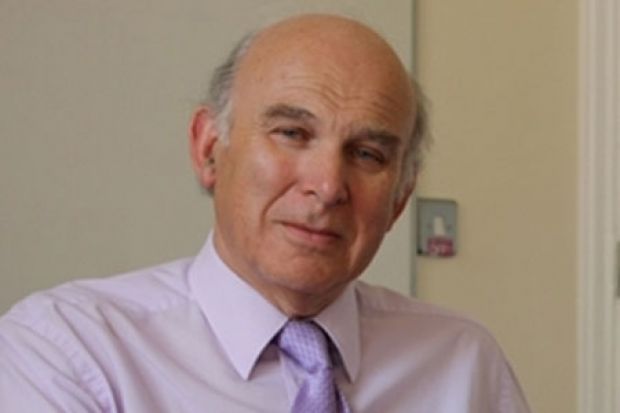The government is close to achieving its goal of having an enterprise society in every university, with the number of such groups growing more than tenfold in four years.
In 2009 there were 12 enterprise societies in UK universities and colleges, but there are now 130.
Vince Cable, the business secretary, recently told an event that “within the next year or so almost every university will have one”.
He was speaking at Start-up: a Story, a forum hosted by the University Alliance and the National Consortium of University Entrepreneurs, which was held in London on 16 April.
In 2011, the coalition committed to help create an enterprise society in every university and at least 160 colleges as part of a package of measures to support small businesses and entrepreneurship.
The University Alliance and the NACUE said turnover from graduate start-up companies more than doubled between 2008 and 2010 to £0 million, but called on the government to build better links between universities and funding schemes to support budding entrepreneurs.
Those aged between 18 and 30 can access a loan of around £2,500 through the government-backed Start-Up Loans scheme, although the project has been criticised for being slow to get off the ground.
Mr Cable told the event that the rise of such societies showed how radically the attitude of universities towards business had changed.
When the University of Warwick decided to establish a business school in the 1960s, “this became a focus for student protests around the country. The university was blockaded; [the business school] was considered an absolute outrage”.
There was a view that business schools would “corrupt the system” and “must be stopped”, Mr Cable added. However, there was now an “upsurge in entrepreneurial activity across the university sector”, he said.
“One of the big things that is happening…is not just students discovering entrepreneurial activity but universities [also] realising that their future in many cases lies with their local community, including their business community,” the minister added.
Register to continue
Why register?
- Registration is free and only takes a moment
- Once registered, you can read 3 articles a month
- Sign up for our newsletter
Subscribe
Or subscribe for unlimited access to:
- Unlimited access to news, views, insights & reviews
- Digital editions
- Digital access to THE’s university and college rankings analysis
Already registered or a current subscriber? Login




